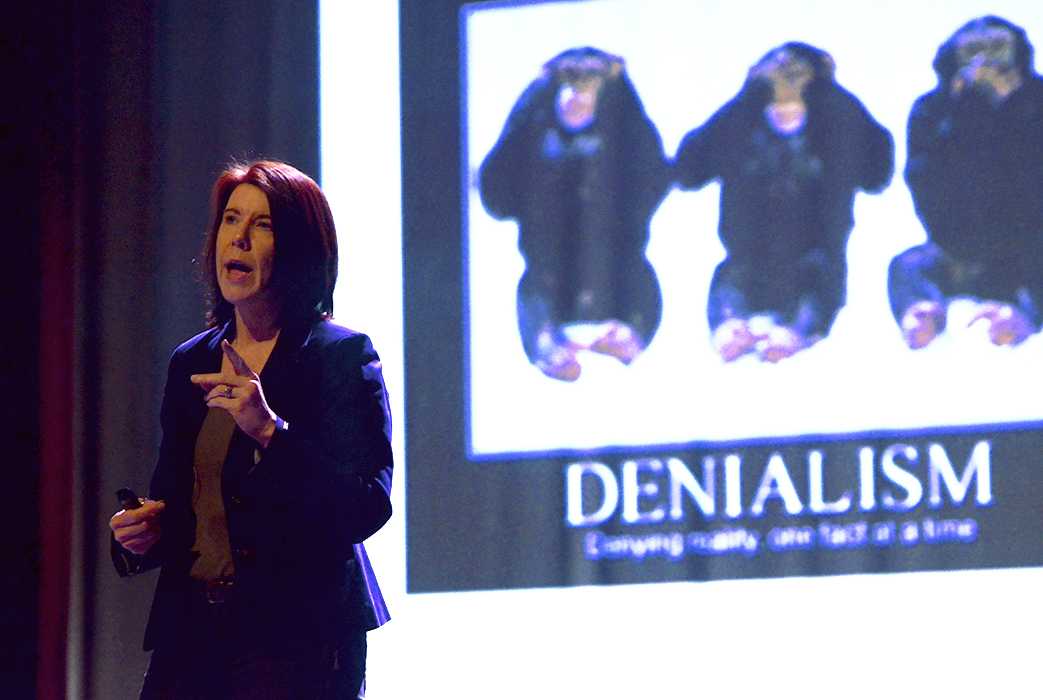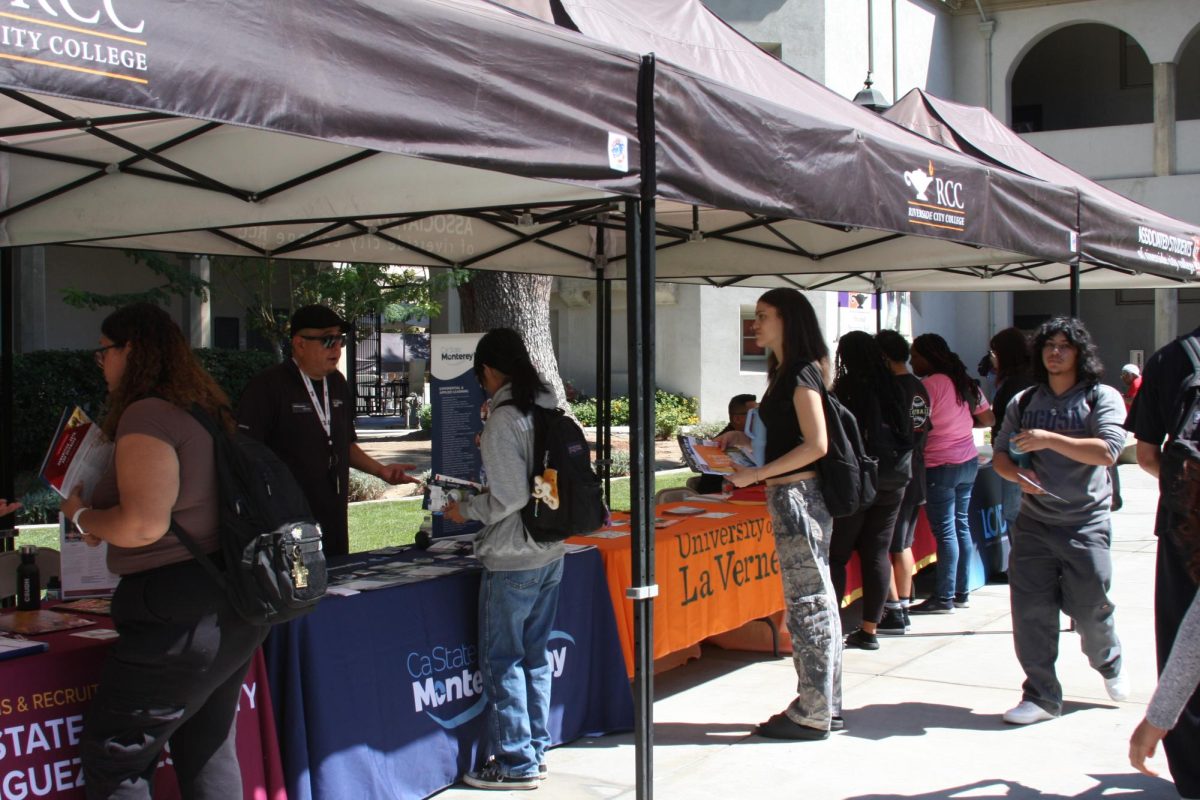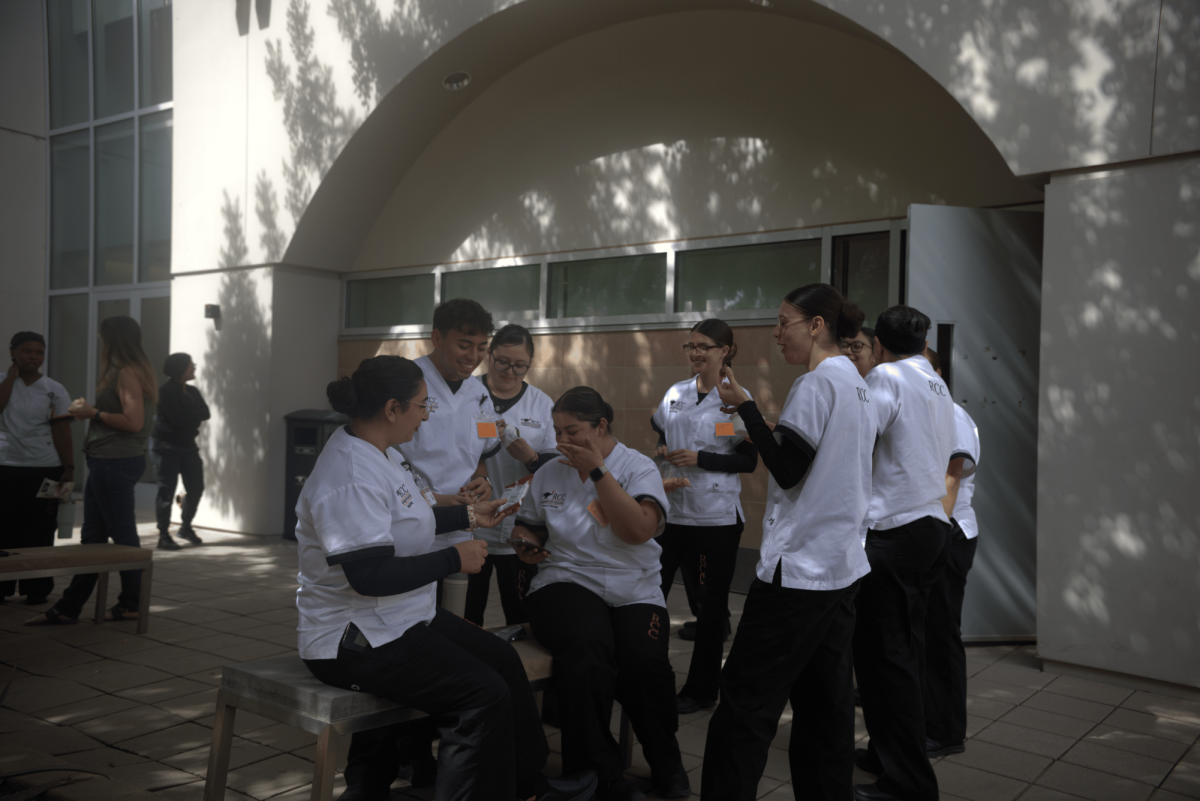
As students, staff and faculty entered Landis Auditorium on the afternoon of Feb. 18 for an Active Shooter Seminar they heard a recording of a frantic emergency call made during the 1999 Columbine High School shooting in Colorado.
Sherry Colgan-Stone, Riverside Community College District’s Safety and Emergency Planning Coordinator led the seminar.
Colgan-Stone asked those in attendance if they thought they could have survived physically and mentally had they been present that day. She urged the audience to avoid denying that a mass shooting like Columbine could happen at RCC.
“I think everyday of the possibility that ‘X’ could happen here. The flood could happen here, the earthquake could happen here, the active shooter could happen here … and we all have to think that way,” Colgan-Stone said. “What is the first thing that came out of people’s mouths after the San Bernardino shooting? We just never thought it would happen.”
The last Active Shooter Seminar was also presented by Colgan-Stone and was held at RCC in November.
“This is the one training I hope you never have to use, but I thank you for being here and it is important that you spread the message and get people thinking of the best course of action in this type of event,” Colgan-Stone said.
She told the audience to use their intuition and be aware of their surroundings.
“Don’t be that person with headphones on, your head down texting and looking for something in your purse or backpack,” Colgan-Stone said.
RCC student Veronica Ewing agreed with this advice and related an occasion when she was on vacation with her family and checking into a hotel. She said she recalled seeing a man that looked suspicious and warned her family that they shouldn’t stay. Later on they found out that someone had been attacked in the very room they had planned on staying in.
“My father was a Marine and he told us that anything can be used as a weapon,” Ewing said. “It can be anything from an active weapon like a knife to a shoelace or even a balled up piece of paper you use to distract someone.”
Ewing said she attended the seminar because of an unfortunate tie to the Dec. 2 San Bernardino mass shooting at Inland Regional Center carried out by Syed Rizwan Farook and Tafsheen Malik.
“I mainly came to this training because one of my close family friends was a victim of the San Bernardino shootings, Sierra Clayborn” Ewing said. “It hit us all hard,”.
Colgan-Stone recommended that people have a plan and be prepared, as opposed to being paranoid or worried, and that the RCCD community should participate in drills, so that they would know where exits are located and the proper protocol to follow in an emergency.
“If you visualize your response in an emergency you are more likely to do it in the actual scenario,” Colgan-Stone said. Even talking about it helps.”
She also said students should know how to defend themselves, but not to seek out an active shooter. Delaying is another tactic.
“You want to put time, distance or some type of shielding between you and the shooter,” she said. “As long as you are alive, you have options.”
She advised on another tactic to survive an active shooter scenario: barricading. This involves finding a room with few or no windows or areas in which a person can be blocked by a door that can be locked or rigged shut using what is available.
“You have to be McGyver in these situations,” Colgan-Stone said. “A belt or an electrical cord can be used to tie a door shut. You have to use whatever is around.”
Colgan-Stone stressed the importance of building relationships with peers to better identify pre-incident indicators.
“In most active shooter incidents someone knew other than the shooter. There are warning signs. Even if something seems insignificant don’t be afraid to report it,” she said.
RCC student Karen Nonnewitz, who served as a Marine for 30 years admitted that after the San Bernardino shootings she was wary of returning to the campus. She said after speaking with Virginia Blumenthal, RCCD Board of Trustees president, about her concerns, she felt more comfortable to resume classes.
Nonnewitz said she was disturbed that not all faculty members were informing students about the potential of an active shooter incident on campus.
“I think these types of trainings should be mandatory for everyone,” Nonnewitz said.
The next RCCD active shooter seminar is scheduled for March 4 from 1-3 p.m. at Moreno Valley College in SAS 103.












